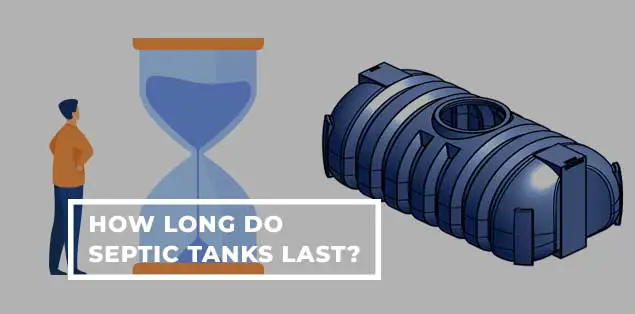So, how long do septic tanks last? When you install a septic system, you have to think about the long term. You’ll be using this system for many years. In most cases, your septic tank won’t ever need replacement. However, if you want the best life for your septic system, you must maintain it regularly.
This article discusses how long a standard septic tank lasts. We also explain when it’s time to replace your septic system and if it might be more cost-effective to upgrade your existing tank instead.
What Is the Life Expectancy of a Septic System?
The lifespan of a brand-new sewage treatment system is somewhere between 20 and 30 years on average. There is considerable wiggle room regarding this particular statistic. However, the time that a septic system continues to work correctly might get influenced by several factors. Septic systems installed correctly and kept in good condition throughout time are more likely to last.
How Long Do Concrete Septic Tanks Last?
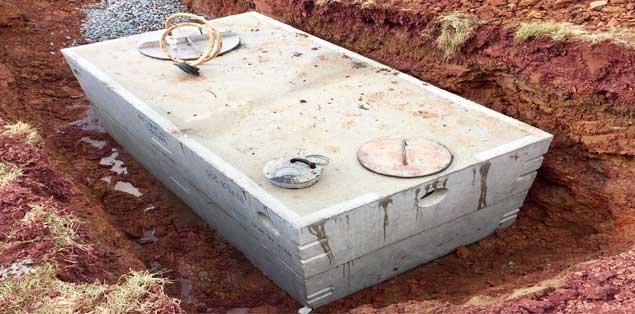
A concrete septic tank, which is the most prevalent form of tank used in homes and businesses today, has the potential to survive for a significant amount of time.
In general, owners of concrete tanks do not need to worry about the problems associated with replacing their septic tanks for around 20 to 30 years. A high-quality concrete tank may potentially have a forty-year lifespan if properly maintained during its lifetime.
Pumping your septic tank regularly is necessary if you want to extend the longevity of your system. Get in touch with a reputable firm that provides septic tank services at least once every two to three years to have your tank pumped out.
When you hire a service provider to pump your septic tank, ask them to examine your system. They can search for any possible problems that may need further maintenance. However, finding these problems and fixing them may also help your tank endure for a much longer amount of time.
You can lengthen the life of your septic tank addition by having it pumped out regularly. You can do this by being mindful of the items you flush down the toilet and reducing the amount of solid waste you produce. The following are examples of things you should never dispose of in a septic tank. However, the list is not exhaustive:
- Waste material that poses a danger
- Cat waste
- Disposable diapers
- Used grinds for coffee
- Toilet paper or paper towels
- Pads or tampons
- Insecticide
- Cigarette butts
- Any equivalent of fat or grease
- Thinner for paint (or varnish)
- Gasoline
How Long Do Plastic Septic Tanks Last?
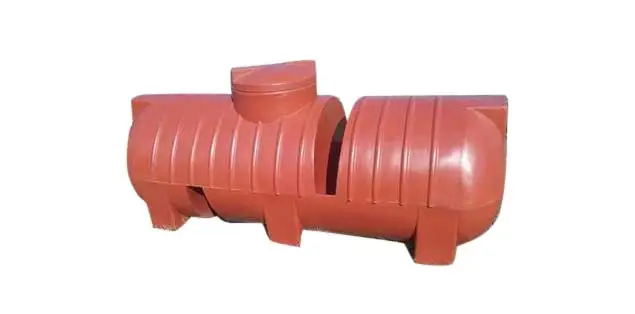
If constructed properly, plastic tanks may last forever. However, this requires that you carefully execute the installation process. An inappropriate installation depth causes the majority of the failures that we come across. How the area surrounding the tank was backfilled can also lead to failures.
Suppose you’ve buried them for an excessively long period. In that case, the weight of the earth on top of them might cause the tank to become deformed and potentially shatter. In addition, every manufacturer publishes their own recommendations for the optimal tank installation depth.
Because the earth is continually shifting, protecting a tank by backfilling the area around it with sand, gravel, or clean soil is an approach that will be effective over the long run. On the other hand, if you use rocky soil to backfill around the tank, you risk the pebbles rubbing a hole in the tank over time or perhaps puncturing it.
Plastic septic tanks are not as long-lasting as their concrete counterparts in terms of durability. However, they are less cumbersome and more manageable, which is a significant benefit for those who must relocate their septic tank regularly.
Pros:
Plastic septic tanks are low in weight and simple to move from one location to another.
They are resistant to corrosion, unlike conventional storage tanks.
They may be laid over an existing foundation or excavation site, eliminating the requirement for concrete slabs or footings in either location.
Cons:
There is an expected lifetime of 15 years for plastic septic tanks.
Due to the unconventional manner in which manufacturers assemble them, they need more care than conventional ones.
How Long Do Fiberglass Septic Tanks Last?
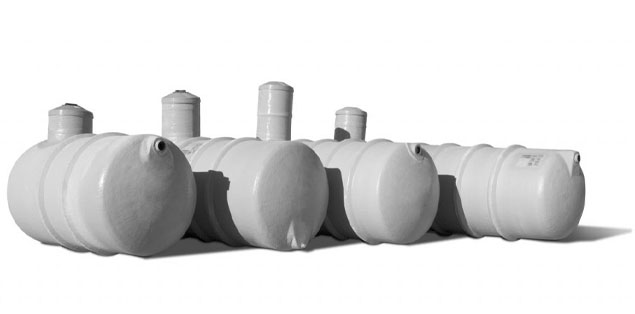
30 years.
Tanks made of fiberglass are lightweight and resistant to corrosion and cracking. They need very little in the way of training and are watertight once you’ve fitted them. However, it is not limited to a certain place where you may install it. On the other hand, these tanks can potentially float if the groundwater level is very high.
However, you may mitigate this drawback by installing an appropriate anchoring mechanism. They have a potential lifespan of more than 30 years.
If you are conscientious about how you use your system, you may extend the amount of time it remains in working order. For example, it is necessary to know how many people will be using a septic system to design the drain field properly, also referred to as a leach field.
Each bedroom is assumed to be occupied by two people for this computation. Therefore, you must design a drain field that serves a home with two bedrooms for a capacity of four occupants.
The drain field is often the first component of the septic system to begin experiencing issues. The root cause of the problem is frequently hydraulic overload brought on by excessive system usage. This may cause the particles in your septic tank to be flushed out of your tank and into your drainage system before having a chance to decompose properly.
This may happen when your tank receives more water than it handles. After that, the solids find their way into the drain field, where there are insufficient numbers of the appropriate bacteria to break them down effectively.
How Long Do Metal Septic Tanks Last?
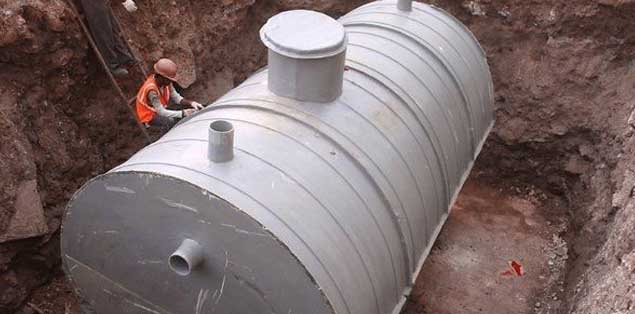
After around 15 years, a metal or steel septic tank might corrode and become less sturdy.
The components of constructing a septic tank significantly affect how long it will remain in service. Steel tanks are sometimes present in older sewage treatment systems. Steel septic tanks have a lifetime much less than concrete septic tanks, lasting about 15 to 20 years on average. Rusting steel tanks have a shorter lifespan than other types of tanks because rusting may lead to failure and leaks in the tank.
It’s possible that steel septic tanks aren’t allowed in your area, but it depends on where you reside. This is because steel tanks have a propensity to rust and corrode, which makes it possible for them to collapse. This poses a potential risk of illness to the people living in the house, neighbors, and animals in the area.
Suppose you reside in a region with very acidic soil. In that case, it might dramatically reduce the time your septic tank will be effective. For example, a concrete tank may get corroded by acidic groundwater and soil, which can cause septic systems to fail far sooner than they otherwise could have. But, on the other hand, suppose you live in a region with more neutral soil and higher quality soil. In that case, there is a chance that your septic tank might survive even longer than 40 years, provided you take the necessary precautions.
When evaluating how long a septic tank will endure, there are a variety of other environmental elements that you may consider. For example, suppose you have any shrubs or trees around your septic tank. In that case, the roots from such plants might grow on the system’s pipes or even grow into the pipes themselves. Because of this, the pipes may get clogged, develop leaks, or even break.
How Often Should I Pump My Septic Tank?

When establishing how often your septic tank needs to be pumped, we first look at the population in your home. We suggest having your septic tank drained every four years if only two or three people are living in the home regularly.
This is due to the minimal waste your house will produce. But if you use a lot of fats and oils or toilet paper that you can’t use in a septic tank, you’ll need to have it pumped out more often.
We suggest having your septic system pumped every three years if you live in a house with three to four people. We recommend having your septic system pumped every two years if you live in a home with more than four people.
The frequency with which you host dinner parties or other social gatherings is something else to consider. This might cause a significant amount of wear and tear on your leach field since there will be a significant increase in the volume of water utilized. In addition, there will be less time for the wastewater to undergo pre-treatment before it is sent to the STA.
It could be worthwhile to pump the system more often or immediately before the big event. This applies if you host many parties or are preparing to host a big event at your house. In addition, if you utilize your home as a rental property, the people who stay there likely won’t know how to use the septic system appropriately.
This implies that they will flush the incorrect items, which will cause your septic system to wear out prematurely. Even if you have a dump station for your RV at your house, which is not a good idea, you should still get your tank filled more often. It is best to steer clear of getting an RV if possible since the chemicals in an RV tend to destroy the beneficial microorganisms in your septic tank.
What Are The Factors That Determine A Septic Tank’s Life?

The following is an outline of the most significant factors that influence the lifespan of a septic system:
Amount Of Individuals And Bedrooms

Total water consumption is based on the amount of water used by each room in a typical home. To put it another way, the number of bedrooms in your home will directly correlate to the amount of wastewater your septic system will need for processing. For example, suppose that the septic tank is constantly full of water.
In that case, wastewater may exit the septic tank and discharge into the drain field. Also, this will happen before bacteria have completed digesting organic waste or other particulates have had an opportunity to set out of the wastewater. Because of this, these solids may find their way into the drain field, ultimately leading to the system’s failure.
The Products You Use

Some common home goods include chemical pollutants that, in high enough concentrations, threaten the bacteria essential to properly functioning the septic system. The more a person who owns a septic system utilizes hazardous things to the environment, the more damage they do to their system. Most of the time, the goods you put into your house will directly affect the level of health and the amount of time your septic system will remain functional.
Soil Type

Your septic system’s longevity might also be affected by the acidity of the soil in which you buried it. For example, when you have a drain field buried in clay-like soil, the waste it transports will have a tough time permeating and dispersing. When this happens, it may lead to blockages in your septic tank, which can then overflow.
Again, this may lead to a significant health problem you must treat. For example, if your storage tank is present in hard or clay-like soil, you should plan for more regular inspections and upkeep. Especially if you have a big family, this is the greatest method to avoid an overflow.
Non-acidic Soil
Septic systems are best on non-acidic soil. Acidic soil may damage steel, plastic, and cast iron pipes. Steel or other corrosion-prone materials used to build your septic tank will have the same effect. This significantly increases the system’s life expectancy if buried in non-acidic soil. For this reason, it is important to consider soil type while scheduling and maintaining your property.
Highly Acidic Soil
It is already obvious that septic systems are vulnerable to the effects of excessively acidic soil. Acidic soil destroys almost every system, although concrete tanks will last much better than steel or plastic ones. Therefore, you should test the soil if you aren’t sure what sort of soil you have or if you want to acquire a septic-system-equipped house in the future.
Schedule a system inspection if the soil is very acidic. Then, plan regular maintenance to detect any possible difficulties due to soil acidification.
Final Words – How Long Do Septic Tanks Last?
The average life expectancy of a septic system is between 15 and 40 years. Many elements influence how long a system lasts, including the building material, soil acidity, the water table, maintenance techniques, and more.
Depending on your septic system, this lifetime estimate is professionally planned and constructed following local construction codes by a licensed plumber.
